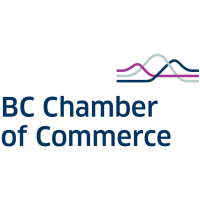Temporary Foreign Workers Letter
September 24, 2025
Mr. David Eby, MLA
Premier of British Columbia
Parliament Buildings Victoria, BC V8V 1X4
Sent via email: premier@gov.bc.ca
Re: Temporary Foreign Workers
Dear Premier Eby,
We are writing in response to the recent discussion regarding the Temporary Foreign Worker (TFW) Program. The BC Chamber of Commerce and local Chambers of Commerce and Boards of Trade are concerned by the growing negative narrative surrounding the TFW program, which is an important tool to address labour shortages and fill critical positions when no Canadians are available.
We have heard from many of our members that cancelling the program would lead to business closures, partial closures, reduced hours, reduced food security or an inability to harvest their crops. These impacts will not only affect those who have come to Canada through the TFW program, but our broader economy and workforce.
We also agree and share your commitment to ensuring that Canadian workers have every opportunity to participate fully in the labour market. What we are asking for is to focus on strengthening the program’s integrity while maintaining access for employers who genuinely need it.
At the outset, we think it is important to rearticulate the broad principles of the program. The TFW program should be used only when qualified Canadians or permanent residents are not available. We agree. Additionally, safeguards must ensure fair wages, safe working conditions, and protection from exploitation. While in Canada, foreign workers have the same rights and protections under federal, provincial and territorial employment standards as Canadians and permanent residents. We agree that abuse of any worker is always unacceptable and should not be tolerated.
Our members are concerned the core elements of the program are at risk due to oversimplifying a complex issue and attributing broader economic or employment challenges to the TFW program alone. This view does not reflect the full picture of today’s labour market. Structural changes in the economy, geographic differences, shifting demographics, and persistent sector-specific labour shortages are key factors that must be considered when designing effective policy responses.
Last year, workers who entered Canada through the TFW program represented less than 1% of the Canadian workforce, approximately 192,000 out of 20.7 million workers and nearly every TFW position has gone through the LMIA process to prove no Canadian or permanent resident was available for the job.
Further, the federal government ties access to the Low-Wage stream in the TFW program to the unemployment rate in the region where the job is located. For example, if the regional unemployment rate is above 6%, restrictions apply and no LMIAs are issued for low-wage occupations in the accommodation, food services, or retail trade sectors in those regions. The intent is to ensure Canadians have first access to entry-level and service-sector jobs during periods of slack labour markets.
Currently, seven cities in British Columbia are on this list.1 These safeguards help ensure the fairness and integrity of the program.
Concurrently, four of the top ten economic regions with the highest job vacancy rate in Canada (jobs for which employers cannot find employees) are located in British Columbia.2 This demonstrates there is a need for additional employees, the longer these positions go unfilled will mean less productivity and lower prosperity. It stands to reason that one option that should be considered is to welcome people from outside our country to come fill available jobs.
As the labour market evolves due to the challenging economic times, the use and demand for the program may change as potentially more local workers become available.
It is important to note that LMIA’s cost employers many thousands of dollars every single time and require a significant amount of energy to complete. Employers we speak with have, nearly, universally said they would prefer to hire a local resident rather than go through the process of identifying an employee through the TFW program. Most often the TFW program is the avenue of last resort.
With the above being said, we acknowledge there is room for improvement in our nation’s immigration system, programs and policy applications so they better serve our economy, support business growth, and ensure a robust talent pipeline, especially given the substantive swings in policies in recent years. I invite you to read the attached discussion paper entitled Reimagining Immigration to better understand the challenges employers are facing and a potential solution that will re-instill trust and confidence in Canada’s immigration system for employers, workers, and the Canadian public.
1 https://www.canada.ca/en/employment-social-development/services/foreign-workers/refusal.html
2 Stats Canada, The Daily — Job vacancies, second quarter 2025
We urge your government to advocate to the federal government for reasonable solutions and to adjust the TFW program, if needed, but not to abolish it, while also ensuring that the broader immigration system and related programs position B.C. to access the talent needed to support economic growth.
As always, the BC Chamber of Commerce and our members are committed to working with your government to find solutions to the challenges we face.
Respectfully,
Alex McMillan, CEO (interim) - BC Chamber of Commerce
Naomi Larsen, Executive Director - Chetwynd Chamber of Commerce
Daneka Hussey-Hughes, Executive Director - Dawson Creek & District Chamber of Commerce
Bev Vandersteen, Executive Director - Fort Nelson Chamber of Commerce
Tiffany Hetenyi, Executive Director - Fort St. John and District Chamber of Commerce
Bridgette Anderson, CEO - Greater Vancouver Board of Trade
Neil Godbout, Executive Director - Prince George Chamber of Commerce
Kristi Maier, CEO - Ridge Meadows Chamber of Commerce
Samantha Hackett, Executive Director - Tofino Chamber of Commerce
Tracy Medley, Executive Director - Mackenzie Chamber of Commerce
Wendy McDougall, Executive Director -Fernie Chamber of Commerce
BCCHAMBER.ORG | BCCC@BCCHAMBER.ORG | #705 - 750 W PENDER ST, VANCOUVER, BC, V6C2T8 | P 604.683.0700 | F 604.683.0416

